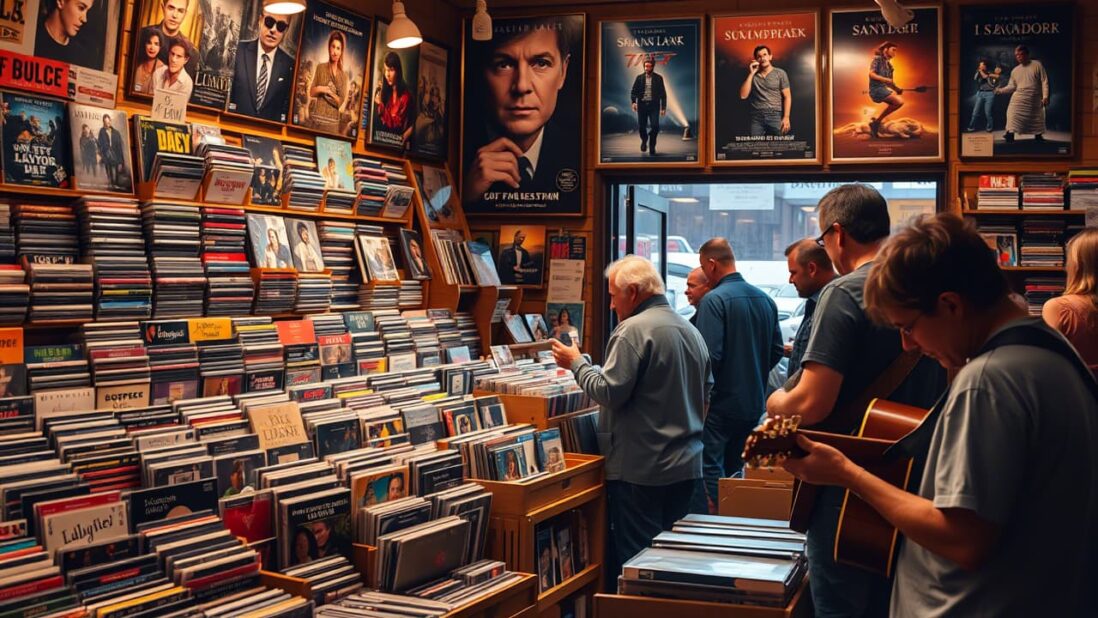There’s something magical about music in film. A few notes swell and suddenly, your heart races. A soft melody plays, and you’re on the verge of tears. Music, more than dialogue or visuals, is often what stays with us long after the credits roll. And in a world where music is everywhere — in our earbuds, our games, our TikToks — film scores remain a unique, timeless force.
There’s something undeniably special about movie soundtracks. They are not just background noise — they’re emotional blueprints, storytelling companions, and cultural touchstones. Few genres are as beloved by musicians and fans alike.
Let’s explore why film music continues to captivate generations — and how iconic soundtracks like Star Wars have redefined the way we connect to both music and storytelling.
Film Scores: The Silent Narrator of Cinema
Great film music does more than enhance — it speaks. It can whisper a character’s fear, roar a battle cry, or gently guide us through a moment of grief. In many ways, a film score acts as an invisible narrator, telling the emotional truth even when the characters can’t.
Think about John Williams’ “Imperial March” from Star Wars. Those first few seconds — booming, ominous, proud — immediately conjure the image of Darth Vader. The music doesn’t just accompany the character; it is the character.
That’s the power of a great soundtrack: it helps define identity, emotion, and intention. Music takes something we see and turns it into something we feel.
Timeless Tunes Across Generations
One of the most beautiful aspects of film music is how it transcends time. While pop songs may drift in and out of popularity, iconic scores stick around. Decades later, orchestras still play them. Kids who’ve never seen the original movies can hum the tunes.
Take Star Wars, for instance. John Williams’ legendary score from the original trilogy continues to be performed, studied, and loved by fans young and old. Even people who’ve never watched a single film know that opening fanfare — a sonic passport to adventure.
If you’re interested in diving into these powerful themes, you’ll find a fantastic Star Wars Classic Trilogy collection, which features some of the most unforgettable tracks from the saga. It’s a perfect way to revisit — or discover — the majesty of galactic music that changed film history.
Why Musicians Love Film Scores
So what is it about film music that draws in musicians, producers, and songwriters?
First, there’s the complexity. Film scores often rival symphonies in their orchestration. Multiple layers of strings, percussion, brass, and digital elements are meticulously crafted to create an emotional journey.
Second, there’s versatility. One film score might blend classical composition with electronic beats, folk instruments, or jazz improvisation. This variety offers musicians endless inspiration.
Third, it’s about emotional storytelling. Composing for film teaches musicians to write with purpose, to build tension, release, sorrow, and triumph — not just catchy hooks.
For those who play instruments, learning film music is a rich and rewarding challenge. And for those who love collecting, remixing, or studying music history, it’s a treasure trove.
From Galaxy Far Away to Living Rooms Today
Star Wars is a particularly vivid example of how music can shape an entire universe. Without John Williams’ soaring strings and thunderous brass, would the Force feel as powerful? Would battles feel as epic?
The genius lies in how Williams assigned musical themes to characters, ideas, and places — a technique known as leitmotif. This gives fans a sense of familiarity and connection: when you hear Princess Leia’s theme or Yoda’s reflective melody, you know what’s coming — emotionally, if not narratively.
The result? A soundtrack that doesn’t just support the story — it becomes part of it.
And what’s even more incredible is how this music lives on. Fans create covers on YouTube, students perform them in school bands, DJs remix them into dance tracks. Whether it’s on vinyl or in a Spotify playlist, this is music that continues to evolve without losing its soul.
The Music Shop’s Role in Celebrating Soundtracks
If you run or frequent a music shop, you know the power of shared passion. People come in not just for strings and picks — they come for the stories behind the music.

Stocking film soundtracks on CD, vinyl, or digital download is a way to invite that passion into your space. It connects your customers to something bigger than the music alone — to characters they love, movies that changed their lives, and memories tied to those melodies.
Whether it’s a teenage fan humming the Avengers theme or a seasoned musician dissecting Hans Zimmer’s chords, film music creates conversation, community, and creativity.
More Than Nostalgia — A Gateway to Music Education
Soundtracks are also fantastic gateways into learning music. A child might pick up a violin not because of Mozart — but because they want to play “Across the Stars.” A budding pianist might stick with lessons longer if they’re learning “Hedwig’s Theme” from Harry Potter instead of just scales.
For music educators, using film music in the classroom makes theory accessible and exciting. For music shop owners, recommending sheet music from popular soundtracks opens the door to a whole new audience.
Conclusion: The Score Beneath Our Lives
Film music matters — deeply. It’s there when we fall in love with a character, when we brace for a final battle, when we remember a moment from childhood. It turns visuals into emotions and feelings into memories.
At danbairdandhomemadesin.net, we honor the music that shaped us, that still gives us goosebumps, and that keeps future musicians inspired.
So whether you’re spinning The Empire Strikes Back on vinyl, learning a string arrangement from your favorite fantasy epic, or simply whistling a tune that won’t leave your head — know that you’re part of something grand.
Because in the end, the soundtrack of our lives often begins in the darkened glow of a movie theater — and echoes forever.